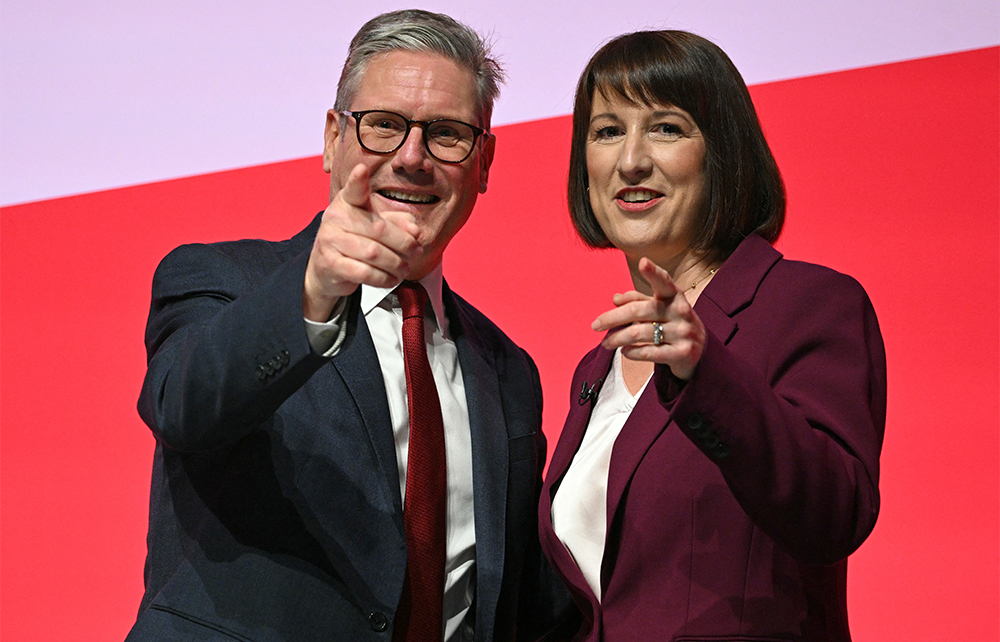In electing this government, we seem to have picked the worst of both worlds: higher taxation combined with austerity in the public finances. The one bonus I had hoped to see from a left-wing regime was a healthily indulgent approach to spending. Instead we get a Chancellor of the Exchequer who is a former Bank of England economist. Voting Labour and getting a neo-liberal Chancellor is like going on a Club 18-30 holiday and bringing your parents along. It defeats the purpose of the exercise.
Our education and political systems select for the ability to win arguments far more than for the ability to solve problems
In 2012 the Nobel Prize-winning economist Richard Thaler complained: ‘As a general rule, the United States government is run by lawyers who occasionally take advice from economists. Others interested in helping the lawyers out need not apply.’ Here we have a country that is literally run by a lawyer being advised by an economist. The effect of this un-holy alliance will be for government to continue in its present default-mode whereby its energies are devoted to the two things large institutions resort to when they run out of ideas: arse-covering (law) and penny-pinching (economics). Both approaches are like catnip to the bureaucratic mind, since they allow the pen-pusher to delegate every decision to a spreadsheet or an external legal opinion, hence avoiding subjective judgment, which may expose you to blame. Economics and law are two major enabling forces in allowing people to make a seemingly unassailable decision without actually deciding anything at all.
It is this unholy alliance, not migration, that has most contributed to the rise of ‘popularism’: a not unnatural aversion to having decisions about your life taken by people in thrall to mental models at several removes from reality. Migration is one of many crunch-points between common sense and bureaucracy, when people reasonably wonder why the Royal Navy is power-less in the face of six Albanians in a rubber boat. Lawyers, that’s why.
We select our governing class in a way which maintains the pretence of meritocracy. The criteria we apply to sift for our leaders is rather a poor proxy, because our education and political systems select for the ability to win arguments far more than the ability to solve problems. As Dominic Cummings observed, it is far better for your political career to put on a good show on the Today programme than to solve a significant problem. Politics thus becomes a kind of Oxford PPE tutorial writ large.
Unfortunately these two skills – winning arguments and solving problems – are widely different and do not always cohabit comfortably in the same brain (entrepreneurs are almost always unreasonable).
The latter skill also takes time to emerge. As the psychologist Gary Klein explains in his book Sources of Power: ‘The major factor that distinguishes experienced from less experienced decision–makers is their situation assessment ability, not their reasoning per se.’
Anyone who has met a senior cop, soldier or doctor will recognise this distinction. We would probably have a more neurodiverse governing class if we had stuck with a hereditary House of Lords, rather than the economico-legal autistocracy which replaced it. The fact that Kemi Badenoch has worked at McDonald’s is perhaps her prime qualification for leadership.
Fascinatingly, there is a partial solution to the creation of neuro-diversity in decision-making which is more than 2,000 years old. According to Herodotus, when the Persians debated anything, they debated it twice: once while sober and once while drunk. Only if they agreed in both states would they then proceed. From a standpoint of neurodiverse decision-making, this makes sense. In the Mad Men era, when Americans were drunk after lunch, the economy grew at about 9 per cent annually.








Comments